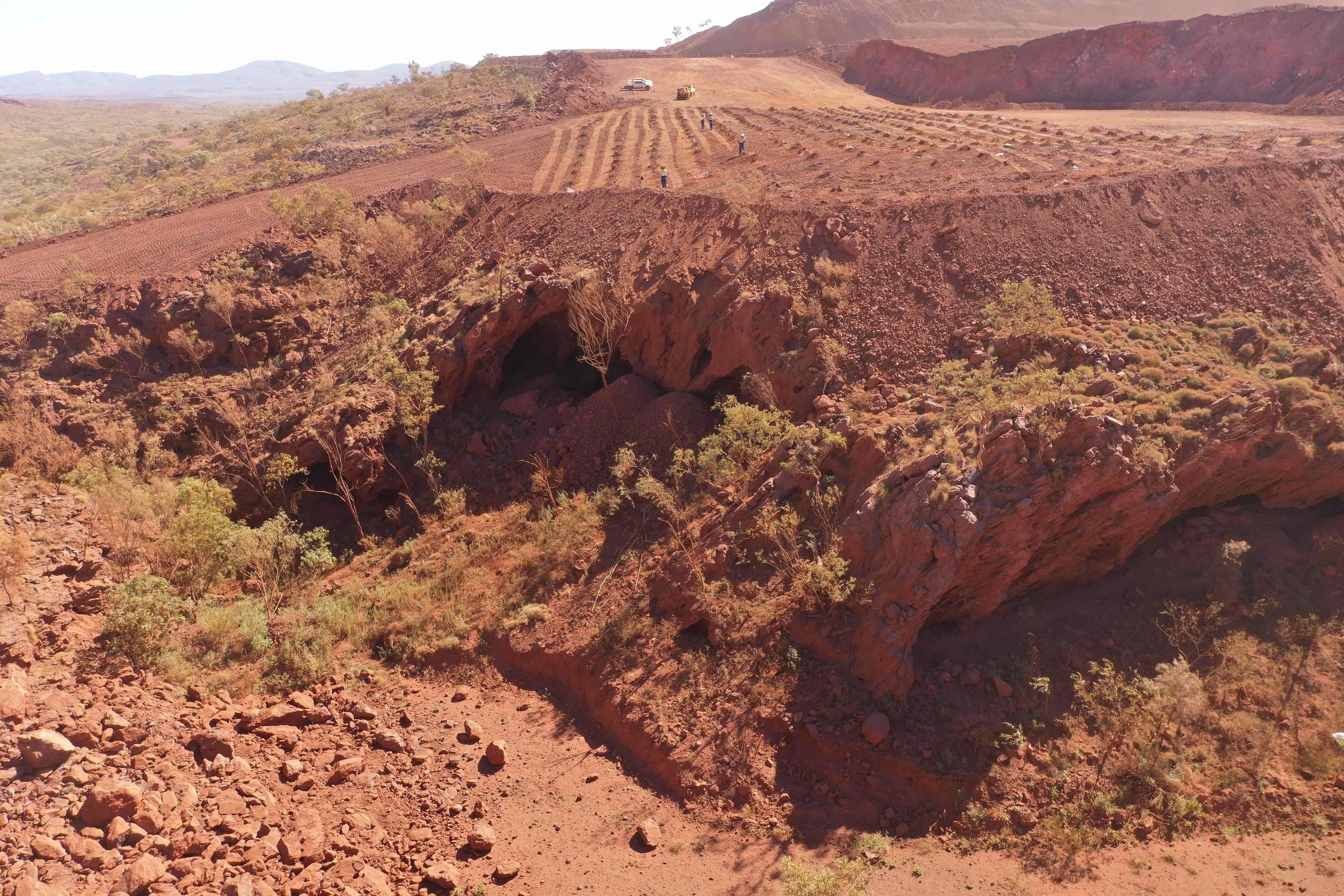Rio Tinto expected to destroy 124 more Aboriginal sites
Indigenous owners raise concerns at inquiry into mining corporation’s demolition of Juukan Gorge caves

Your support helps us to tell the story
From reproductive rights to climate change to Big Tech, The Independent is on the ground when the story is developing. Whether it's investigating the financials of Elon Musk's pro-Trump PAC or producing our latest documentary, 'The A Word', which shines a light on the American women fighting for reproductive rights, we know how important it is to parse out the facts from the messaging.
At such a critical moment in US history, we need reporters on the ground. Your donation allows us to keep sending journalists to speak to both sides of the story.
The Independent is trusted by Americans across the entire political spectrum. And unlike many other quality news outlets, we choose not to lock Americans out of our reporting and analysis with paywalls. We believe quality journalism should be available to everyone, paid for by those who can afford it.
Your support makes all the difference.Mining giant Rio Tinto is feared to be pressing ahead with plans to destroy 124 Aboriginal heritage sites at an iron-ore development in Australia – despite the outcry over its destruction of sacred 46,000-year-old caves earlier this year.
Among the threatened sites in the mountainous region of Pilbara in Western Australia are rock shelters containing Aboriginal paintings, Stonehenge-like arrangements, and built structures that are believed to be of potential archaeological value.
A group representing the indigenous residents of the affected area said that the Anglo-Australian corporation had stopped short of promising a review into the action, following outrage over blasts that demolished the Juukan Gorge rock shelters in May.
“Rio have stated in various forms that they will consider reviewing the agreement [but] we don’t have a formal commitment,” Grant Bussell, the Yinhawangka Aboriginal Corporation’s chief executive, told a public inquiry led by the Australian parliament into the destruction of Juukan Gorge.
Rio Tinto, the second largest metals and mining company in the world, received widespread criticism for its treatment of the site, which led to the resignation of its CEO, Jean-Sebastien Jacques, and his two deputies earlier this month.
The multinational had been lacking, more generally, in its protection of culturally significant sites across the region, according to Yinhawangka archaeologist Anna Fagan, raising concerns over how the rest of the sites would be managed.
“We have 327 heritage sites and 124 will be destroyed by the Western Ranges expansion project by Rio Tinto,” Ms Fagan told the inquiry.
The inquiry also revealed that Aboriginal groups had secretly been subjected to contracts banning them from objecting to mining developments on their ancestral land, prompting questions over whether they gave adequate consent.
In a statement, Rio Tinto said that it was building on decades of deep engagement as it assessed the sites to gain better understanding of “the cultural significance and values placed on these sites by the Yinhawangka people”.
It added that it had pledged to update its policy, including details around the issue of consent, with all groups on whose lands it operates in the region.


Join our commenting forum
Join thought-provoking conversations, follow other Independent readers and see their replies
0Comments